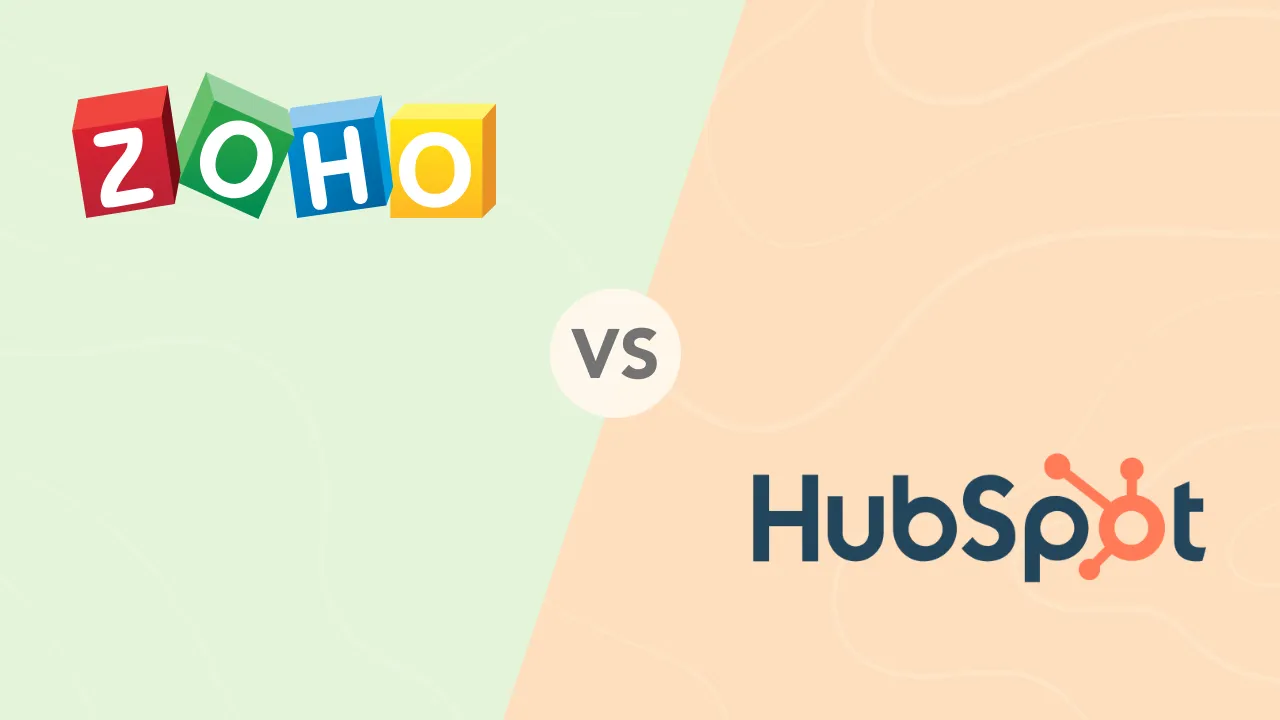LLC registration costs in 2025: The complete guide for small business owners

TL;DR: In 2025, LLC filing fees range from $40 in Kentucky to $500 in Massachusetts. Four states — Arizona, Missouri, New Mexico, and South Carolina — have no annual LLC fees, while California’s $800 franchise tax makes it the most expensive. Most states charge $50–$150 to start, plus $0–$300 per year to maintain. Watch out for hidden costs like publication requirements and registered agent fees.
How much does it actually cost to form an LLC?
Ever thought forming an LLC would be quick, easy, and cheap, only to get blindsided by extra fees? It’s a lot like ordering your favorite coffee. You think it’s $4, then the barista asks if you want oat milk, extra espresso, a flavor shot, and before you know it, you’re staring at an $8 bill.
LLC costs work the same way. There’s the price you expect and the actual total after state fees, annual costs, and surprise requirements. This guide tells you precisely what you’ll pay to form and maintain an LLC in 2025 so you can budget smart and skip the “surprise” part.
Why LLC cost matters more than ever
Some business owners start for under $100, but they spend well over $1,000 once extras kick in.
If you know what to expect, you can avoid overpaying and make the smartest decision for your state, budget, and growth plans.
And here’s the thing, LLC costs aren’t just a “start-up” problem. Annual renewals, taxes, and compliance fees can quietly eat into your profits for years. That’s why understanding the full picture matters from day one.
What’s included in the filing fee
When you pay your state’s LLC filing fee, you’re paying for one thing: permission to operate your business as a legal entity in that state. It typically covers:
- Processing your Articles of Organization (the formal LLC creation document)
- Recording your business name in the state registry
- Adding your business to the public record for legal and tax purposes
What it does not cover:
- Business licenses or permits
- Registered agent services
- Publication fees (in certain states)
- Ongoing taxes or annual reports
Think of it as your “entry ticket” — not the whole game.
Ongoing compliance costs
Once you’re in, you’ve got to stay in good standing. Most states require some mix of:
- Annual or biennial reports — Keeps your company info current. Fees range from $0 to $500.
- Franchise taxes — Flat annual fees in some states (e.g., $800 in California) or percentage-based in others.
- Business licenses — City or county-level fees that can run $50–$500 annually, depending on your industry.
- Registered agent renewal — If you use a service, expect to pay $100–$300/year.
If you ignore these, you risk late fees, loss of good standing, or even involuntary dissolution of your LLC.
State-by-state LLC filing fees in 2025
|
State |
Filing fee |
Annual fee / Report |
|
Alabama |
$200 |
$50 + $100 privilege tax |
|
Alaska |
$250 |
$100 (biennial) |
|
Arizona |
$50 |
None |
|
Arkansas |
$45 online; $50 mail |
$150 franchise tax report |
|
California |
$70 |
$800 franchise + $20 statement |
|
Colorado |
$50 |
$10 annual |
|
Connecticut |
$120 |
$80 annual |
|
Delaware |
$110 |
$300 annual |
|
Florida |
$125 |
$138.75 annual |
|
Georgia |
$100 online; $110 mail |
$50–$60 annual |
|
Hawaii |
$50 |
$15 annual |
|
Idaho |
$100 online |
$0 annual |
|
Illinois |
$150 |
$75 annual |
|
Indiana |
~$95 online |
Biennial report (~$32 online) |
|
Iowa |
$50 |
$60 biennial |
|
Kansas |
~$160 |
$55 annual |
|
Kentucky |
$40 |
$15 annual |
|
Louisiana |
~$100 |
$30 annual |
|
Maine |
$175 |
$85 annual |
|
Maryland |
$100–$155 |
$300 annual |
|
Massachusetts |
$500 |
$500 annual |
|
Michigan |
$50 |
$25 annual |
|
Minnesota |
~$135–155 |
$0 annual |
|
Mississippi |
$50 |
$0 annual |
|
Missouri |
$50 |
None |
|
Montana |
~$70 |
$20 annual |
|
Nebraska |
~$100–110 |
$10 biennial report |
|
Nevada |
$75 + $150 |
$150 annual list/licensing |
|
New Hampshire |
$100 |
$100 annual |
|
New Jersey |
$125 |
$75 annual |
|
New Mexico |
$50 |
None |
|
New York |
$200 + pub cost |
$9 biennial |
|
North Carolina |
$125 |
$200 annual |
|
North Dakota |
$135 |
$50 annual |
|
Ohio |
$99 |
None |
|
Oklahoma |
$100 |
$25 annual |
|
Oregon |
$100 |
$100 annual |
|
Pennsylvania |
$125 + pub cost |
$70 decennial (every 10 yr) |
|
Rhode Island |
$150 |
$50 annual |
|
South Carolina |
$110–125 |
None |
|
South Dakota |
$150–165 |
$50 annual |
|
Tennessee |
~$300 |
$300 minimum annual |
|
Texas |
$300 |
None (franchise tax applies) |
|
Utah |
$70 |
$20 annual |
|
Vermont |
$125 |
$35 annual |
|
Virginia |
$100 |
$50 annual |
|
Washington |
$200 |
$70 annual |
|
West Virginia |
$100 |
$25 annual |
|
Wisconsin |
~$130–170 |
$25 annual |
|
Wyoming |
~$102 online |
$60 minimum annual |
Source: https://llcradar.com/llc-annual-fees-by-state/
The fees listed in this table are accurate as of the time of writing. State filing fees and annual costs can change without notice. Always confirm the latest requirements directly with your state’s official business registration office before filing.
2025 cost trends and takeaways
Four states — Arizona, Missouri, New Mexico, and South Carolina — skip annual fees entirely, making them the cheapest long-term options. Conversely, California, Massachusetts, and Tennessee hit LLC owners hardest with high franchise taxes or yearly report costs that can top $500.
Most states fall in the $50–$150 filing fee range. Still, hidden charges like New York and Pennsylvania publication requirements or mandatory registered agent fees can push the real cost much higher. If keeping costs low is your goal, watch both the upfront filing fee and the annual maintenance cost before you pick your state, and remember that forming an LLC in your home state can save you from expensive “foreign LLC” registration later.
Examples from popular states
- California: A filing fee of $70 sounds great until you add the $800 franchise tax and $20 annual statement. Year one costs can easily top $900.
- Florida: $125 to file and $138.75 per year after that. No franchise tax makes it mid-range and predictable.
- Wyoming: $102 to start, $60 per year to maintain, no corporate income tax, and strong privacy protections. Often chosen for holding companies.
Five-year cost comparison
|
State |
Year 1 total |
5-year total |
Notes |
|
California |
~$890 |
~$4,570 |
Franchise tax drives cost |
|
Florida |
~$263 |
~$835 |
Predictable |
|
Wyoming |
~$162 |
~$402 |
One of the cheapest |
|
New Mexico |
~$50 |
~$50 |
No annual fee |
|
Massachusetts |
~$1,000 |
~$3,500 |
High upfront and ongoing |
Source: https://terms.law/2025/04/20/llc-fees-across-50-states-costs-matrix-and-most-affordable-analysis/
The fees listed in this table are accurate as of the time of writing. State filing fees and annual costs can change without notice. Always confirm the latest requirements directly with your state’s official business registration office before filing.
Hidden costs you might not see coming
- Publication fees: New York and Pennsylvania require public notice, often $500–$1,200.
- Registered agent service: $100–$300/year if you don’t use your address.
- Franchise taxes: California charges $800/year minimum regardless of income.
- Expedited processing: $25–$150 extra, depending on the state.
Choosing the right state
For most small businesses, the best choice is your home state. Even if another state’s fees are lower, operating outside your state usually means you’ll have to register as a “foreign LLC” — paying two sets of fees and filing in two places.
Forming in a low-cost state like Wyoming or New Mexico can make sense if you don’t have a physical presence elsewhere or create a holding company.
How to lower LLC costs
- If you have the time, energy, and patience, file your paperwork yourself.
- Use your address for registered agent duties if allowed.
- Pick a state with low or no annual fees if your business can legally operate there.
- Stay on top of renewal deadlines to avoid late fees.
Final thoughts
Forming an LLC in 2025 can be a simple, affordable process or an expensive surprise, depending on where you do it and how much of the work you handle yourself. Knowing the filing fee, the annual fee, and the hidden extras before you start can keep costs low and avoid headaches later.
If you want to skip the paperwork entirely, we review the top LLC formation services so you can find one that fits your budget and does the heavy lifting for you.
Frequently asked questions
Q. How much does it cost to start an LLC in 2025?
A. In 2025, LLC filing fees in most states range from $50 to $150. Kentucky charges the cheapest, $40, while Massachusetts charges $500. Some states also require annual fees or franchise taxes that raise the total cost.
Q. Which states have no annual LLC fees in 2025?
A. Arizona, Missouri, New Mexico, and South Carolina do not require an annual LLC fee or report. You may still need local business licenses depending on your industry and location.
Q. What is the most expensive state for LLC formation?
A. Massachusetts has the highest filing fee at $500. California’s filing fee is only $70, but its $800 annual franchise tax makes it the most expensive.
Q. What hidden costs can increase LLC expenses?
A. Common hidden costs include publication fees in states like New York and Pennsylvania, registered agent services ($100–$300/year), and franchise taxes in certain states. Expedited filing can also add $25–$150.
How much does an LLC cost in California in 2025?
A. The filing fee is $70, plus an $800 franchise tax due every year, starting in the first year. You’ll also file a $20 Statement of Information every two years.
Q. Is it cheaper to form an LLC in another state?
A. Not if you operate in your home state. You’ll need to register as a “foreign LLC” and pay fees in both states, which often cancels any savings from a cheaper filing fee.
Q. How can I lower the cost of forming an LLC?
A. File the paperwork yourself, use your address as registered agent if allowed, and choose a state with low or no annual fees if it makes sense for your business.




